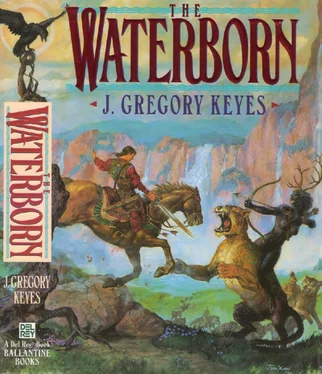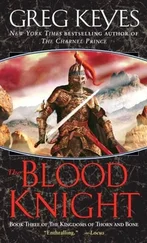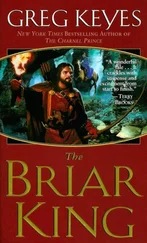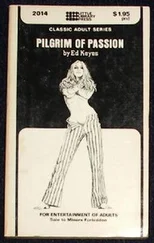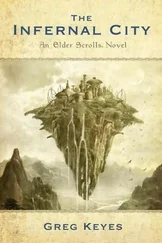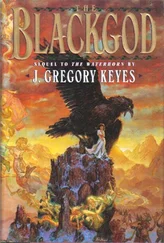Gregory Keyes - Waterborn
Здесь есть возможность читать онлайн «Gregory Keyes - Waterborn» весь текст электронной книги совершенно бесплатно (целиком полную версию без сокращений). В некоторых случаях можно слушать аудио, скачать через торрент в формате fb2 и присутствует краткое содержание. Жанр: Фэнтези, на английском языке. Описание произведения, (предисловие) а так же отзывы посетителей доступны на портале библиотеки ЛибКат.
- Название:Waterborn
- Автор:
- Жанр:
- Год:неизвестен
- ISBN:нет данных
- Рейтинг книги:3 / 5. Голосов: 1
-
Избранное:Добавить в избранное
- Отзывы:
-
Ваша оценка:
- 60
- 1
- 2
- 3
- 4
- 5
Waterborn: краткое содержание, описание и аннотация
Предлагаем к чтению аннотацию, описание, краткое содержание или предисловие (зависит от того, что написал сам автор книги «Waterborn»). Если вы не нашли необходимую информацию о книге — напишите в комментариях, мы постараемся отыскать её.
Waterborn — читать онлайн бесплатно полную книгу (весь текст) целиком
Ниже представлен текст книги, разбитый по страницам. Система сохранения места последней прочитанной страницы, позволяет с удобством читать онлайн бесплатно книгу «Waterborn», без необходимости каждый раз заново искать на чём Вы остановились. Поставьте закладку, и сможете в любой момент перейти на страницу, на которой закончили чтение.
Интервал:
Закладка:
" That isn't what I mean ," Harka said. " How can you pretend to know what the Changeling wants?"
Perkar finished the fish and stood. "This girl who calls me. I think she must be one of these Waterborn. I think he wants me to save her from something. And so I will not."
" Perhaps he wants you to kill her. Perhaps it is she who wants to be saved ."
"We'll see. We'll see when we get there. Right now I feel good, Harka, so keep your doubts to yourself. I choose to do this now—on the River I was compelled. I could walk back home if I wanted, I could go live with the Mang or become a fisherman. I pick my own doom from now on."
" Let us hope ," Harka replied, " that is merely a euphemism and not a prophecy ."
He grinned. "I care not!" he shouted, and brandished Harka above his head before returning him to his scabbard.
He reached the city walls not long before dusk, and found that while his dreams might have been competent to teach him a strange language, they were less adept at preparing him for the sight of the city. The walls alone were larger than any Human-made structure he had ever seen, dwarfing the largest damakuta a hundred times over. To that fact he added that they were clearly made of stone and not wood, and the effort put into building the stupendous stockade was, to him, even more difficult to envision than the artificial streams. As he approached it from a distance, he kept expecting that size to be an illusion that would resolve itself when he got closer, reveal that the city was not really as large as it seemed, that the towers and great rising blocks of buildings that peered at him from over that great wall must be of more reasonable dimensions. And yet, the more closely he approached, the clearer it was that he was in a place where magnificent, impossible things were done. He began to understand, with a sinking feeling, why these people insisted on calling his own "barbarians." What he saw here made the difference between the dwellings of the Alwat and his father's damakuta seem insignificant. Small wonder that the people of Nhol thought of his people in much the same way as his thought of the Alwat. And yet that thought gave him a bit of comfort, because he now understood— finally—that what people built didn't make them any more or less brave, worthy, or deserving. No man he had ever heard of had died any better than Digger and her kin or deserved more praise.
The gatehouse was a white-plastered cube the size of his father's stables; Perkar wondered how many warriors it might hold. He was greeted by only two; they looked at him as if he might be something the River had pulled in, something less than savory. Which, in its own way, was true enough.
"That kitchen knife of yours stays in its sheath here, do you understand?" The soldier spoke slowly, as if he thought Perkar might not comprehend him. "If you go near the great temple, any of the fanes, or within four streets of the palace, you may not wear it at all, unless you are employed by a member of the royal family to do so."
"I understand," he replied. "I am seeking employment for my sword, actually. Can you direct me to someone whose business it is to hire?"
The second guard rolled his eyes. "You barbarians. Never been in a city before in your life, have you?"
"No," he confessed.
"Take my advice. Get a job on the docks, if you need money. That's good, honest work. The nobles don't usually hire foreign bodyguards, and when they do it's usually not very good for your continued well-being, if you understand me."
"I'm not sure I do," he said.
"Too bad," said the first guard, smiling in a way that didn't seem very genuine. "That's all the free advice we'll give today."
Perkar shrugged, a little put off by their rudeness, but still too overwhelmed by the city to take it personally.
"Go down to the docks, near South town," the second guard called after him anyway. "If someone wants your sword, they'll come looking for you there."
"Thank you," he shouted back, meaning it.
Passing through the thick, plastered walls, he entered a maze of confusion. His first instinct was to go back out, take several deep breaths, and reconsider his course of action. How could anyone find anything in such cluttered bedlam?
People were everywhere, as thick as ants on a piece of meat. They clustered in bunches or darted about, called to each other, all talking at once, it seemed. Beyond the gate was a small, cobbled square, buildings bunched at every side of it, enclosing it so that it more resembled a canyon than a yard. The only exits— save for the gate, of course—were a multitude of claustropho-bically narrow paths between the buildings, cobbled like the square. Cobbled paths? Once again, he felt dismay at the sheer scale of Nhol.
He also felt horribly out of place. People were staring at him, rudely and openly. Some—particularly the children—even pointed and laughed. He grimaced uncomfortably. He was a stranger here, of exceedingly strange appearance, undoubtedly, though he had hoped the clothes Ghaj had given him would help. However, he noted that though the people swirling around him were dressed in a similar manner, most wore much more colorful clothing, and though the sun had darkened his skin considerably, it was many shades lighter than any other he saw.
He had not the faintest idea which of the little paths to take, and so he walked down the broadest one; as near as he could tell it led southeast, and the man had said something about Southtown.
The street was crowded, despite the late hour; night seemed to come quickly in the city, and Perkar was reminded of being at the bottom of the gorge at the River's headwaters. The buildings around him rose far above his head, perhaps four or five times his height. Balconies jutted off of these clifflike faces, here and there, and often people stood or sat out on them. Without fail, all of these upper observers followed Perkar's progress closely, and he wondered at first if they might be watchmen of some sort; but most were actually women, some of them rather old. It occurred to him that they might—strange as it seemed— live in those lofts, though he had originally supposed the upper rooms were for storing hay or grain.
As the sky darkened, the street reminded him more of the tunnels in the mountain than of a gorge. The heavens still held blue and gray, even a hint of crimson and argent, but smoke and shadows ruled the streets. Torches burned murkily in sconces near doorways, and the dragon-eyes of oil lamps stalked and hovered around him, revealing here a face, there a patch of clothing, the dark knots of the hands gripping the lantern handles. A fog of smoke from burning wood, oil, and tar lay heavily upon him, mingling with the stench of Human Beings, strange foods cooking, and a half-dozen other distinct but unrecognized odors.
The path he was on intersected a much larger one, and he finally tried to stop someone to ask directions. The person—a man who looked to be about his own age—disdainfully brushed off his inquiring hand and hurried on his way without even paus-ing. Perkar watched him go, dumbstruck. What manner of people were these? They looked like Ghaj, and Win, and Brother Horse, and yet they had not a smidgen of the same hospitality. He reminded himself that they also resembled the pirates who had tried to kill him, and began to proceed a bit more cautiously.
Two more men and a woman rebuffed him, and so at last he stopped a child.
For an instant, he thought the little girl was the one in his vision; she had the same black eyes and hair framing a heart-shaped face. But then he realized that her nose was a bit too broad, her eyes not as large, other details that he couldn't quite place but that added up to the wrong person. She stared up at him, half frightened, half curious.
Читать дальшеИнтервал:
Закладка:
Похожие книги на «Waterborn»
Представляем Вашему вниманию похожие книги на «Waterborn» списком для выбора. Мы отобрали схожую по названию и смыслу литературу в надежде предоставить читателям больше вариантов отыскать новые, интересные, ещё непрочитанные произведения.
Обсуждение, отзывы о книге «Waterborn» и просто собственные мнения читателей. Оставьте ваши комментарии, напишите, что Вы думаете о произведении, его смысле или главных героях. Укажите что конкретно понравилось, а что нет, и почему Вы так считаете.
